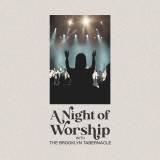7 Biblical Tests for Christians and Music
Determining the right music for church is not easy, but God's Word offers helpful metrics.
Christians disagree about music style as much as any other issue in the body of Christ. More than likely, you've experienced this firsthand. As I've already written, conflicts over music have been common through out church history. Christians have listened to and enjoyed all of kinds of music. But should they?
Christians disagree about music style as much as any other issue in the body of Christ.
In seeking to determine what is the right music for a church, it's important that we use biblical principles in our evaluation. That's not always easy—the Bible doesn't contain music notes. God never gives us His musical preferences.
While it may be difficult, I do believe it's possible to evaluate musical preferences using God's word. The following seven tests each relate to biblical principles that we can apply to our music to determine its suitability.
1. Message Test
This may be the simplest of all the tests. Examine the words of the song and consider its message. Does this song communicate the Word of God? Does the message appeal to our higher nature, or do the words appeal to our lower nature? If we seek to glorify God, it's important that the message of the songs be consistent with what God has already told us in Scripture.
2. Purpose Test
All music was written with a purpose in mind. Here we ask, "For what purpose was this song written?" or "What is this trying to promote or encourage?" Determine whether the music is sad, joyful, uplifting or soothing. Music that may be appropriate at one time may not be appropriate at another. Some music may even be intended to promote sinful choices or ways of thinking. When we apply the purpose test to our music, we choose songs whose purpose lines up with our own as Christians and the values of our local church.
3. Association Test
No music exists in a vacuum. An otherwise good song may be rejected because of its associations. The key question for this test is, "What does the music bring to mind in the heart of the worshipper?" Don't confuse the question. It's not what does it inspire in myheart, but what does it inspire in the heart of the worshipper.
This will depend on the context. When I spoke to a group of pastors, some of whom were Jamaican, they agreed that a variety of musical styles could be appropriate for their churches, but not reggae. For them, that style of music was about drugs. I then asked if it would be OK to use reggae music in my church where it does not have the same connotation. They agreed. The music was not the problem, the association was.
For example, many believe rap music connected to violence and misogyny. To others, however, it can simply be a vehicle to rage against sin and "the world powers of darkness" (Eph. 6:12 HCSB). Lecrae, who recently appeared on The Exchange, epitomizes this in the intro track to his album Rebel:
The form of rap is no less godly than the form in most of our hymns.
And I rap the bread of life cause they dyin' to eat
I'm a rebel you know the kind that die in the street
Cause you refuse to conform,
won't eat the king's meat yeahChrist rebelled by shunning the culture
He eatin' with sinners givin' Pharisees ulcers
He never got married, He was broke plus homeless
Yeah, that's the God I roll wit
What Lecrae has done in "Rebel Intro" is to take a form and to use it for a different meaning. The form of rap is no less godly than the form in most of our hymns. It is a canvas waiting for a picture. The target of the rebellion by Lecrae and others like him is the prevailing cultural attitudes that are contrary to Christ.
4. Memory Test
Memories and past experiences are often associated with significant songs. This can be positive or negative. The memory test asks, "Does the music bring back things in your past that you have left?" Remember, repentance is a significant step in conversion. If you have left the darkness, don't sing songs that make you want to return. This is often a personal issue, as some may struggle with memories associated with a song that can be enjoyed free of those thoughts by other Christians.
Listening to contemporary music does not cause a senior adult to sin...
This means no one can claim a style of music they don't enjoy violates some policy of "offending our brother." That's not scriptural. What the Bible does teach is that we ought to avoid a practice if it causes people to sin. Listening to contemporary music does not cause a senior adult to sin, though it may offend. There is a distinct difference between the two.
5. Emotions Test
Music stirs our emotions—both negative and positive ones. The emotions test asks, "Does the music stir our negative or sinful feelings?" Christian music should stir our passion for godliness, prayer and righteous living. If music causes you to crave sin, it is wrong; no matter how innocent it may appear. We should always evaluate how music affects us emotionally.
6. Understanding Test
This seeks to determine which type of music we understand the best. Some people enjoy and understand classical music, while some don't. Others enjoy and understand country/western (though I'm not sure why). Other people—also known as "those who are right"—hate it. Those who appreciate classical music would find it easier to worship God listening to a recording of Handel's Messiah than a southern gospel quartet. This will depend on the person, their tastes and what it is that best encourages their worship.
7. Music Test
This test, like many of the others, is a "cultural" test that will differ from place to place. It looks at the song to determine its merits based on hymnology. Is the song singable? Does it make your heart join in the song? A song may have Christian words and be sung by a dedicated follower of Jesus Christ, but the music can be flat and leave the audience empty. That particular song will probably pass out of existence because it fails the music test.
Conclusion
God can use any form of music. He has no musical style or preference.
These tests lead us to one simple fact: God can use any form of music. He has no musical style or preference. With the exception of the message and purpose test, the biblical tests listed here are all really about reflecting a biblical grid.
When you or your church is choosing music, it is important that you think through these issues. You may have the freedom to choose, but use discernment to choose wisely. Any musical style can pass the test in the right context, but it takes wisdom and a biblical perspective to determine whether that is the case. Hopefully, these seven tests can help you in that process.
This blog post was adapted from a chapter on music in Perimeters of Light, a book I authored with Elmer Towns. You can order that book here. - ED STETZER
What do you think? Do you like/dislike these? What would you take away/add?
7 Biblical Tests for Christians and Music
 Reviewed by Admin
on
5:49:00 PM
Rating:
Reviewed by Admin
on
5:49:00 PM
Rating:
 Reviewed by Admin
on
5:49:00 PM
Rating:
Reviewed by Admin
on
5:49:00 PM
Rating:

















Post a Comment